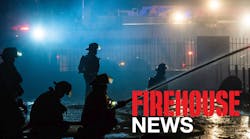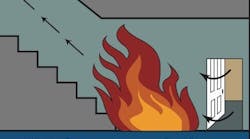At the time, the law caused concern in the fire service about burdensome new testing and licensing requirements that might be imposed on fire apparatus drivers. Additionally, it added drug testing requirements for drivers that some considered unreasonable and/or unnecessary. However, the law also gave the Federal Highway Admini-stration (FHWA), the agency responsible for writing regulations to implement the law, authority to waive the CDL requirements, provided that such waivers did not diminish the safe operation of commercial vehicles. Among the classes of drivers eligible for waivers were firefighters and "emergency response personnel."
In 1988, the FHWA granted a waiver to the fire service, giving to the states an option to exempt operators of fire department vehicles from all of the federal requirements imposed by the 1986 law. In addition to the licensing and testing requirements, the waiver also exempted these drivers from any of the federal drug and alcohol testing requirements.
Since then, FHWA officials report, virtually every state has adopted a waiver for the emergency services. In some states, all emergency vehicle operators have been exempted from CDL rules. In others, distinctions have been made between types of firefighters, such as paid vs. volunteer or federal vs. local, in granting waivers. Still other states have given local jurisdictions the option of whether to require emergency apparatus operators to comply with CDL requirements.
While the states generally have the freedom to accept the federal rules or establish their own standards for emergency apparatus operators, there is one important limitation: a state may not exempt firefighters from some of the federal CDL requirements but not others. This is important, especially with respect to the drug testing requirements.
Since the final federal drug testing rules for commercial drivers were issued in February 1994, there apparently has been confusion regarding the alcohol and drug testing requirements. The FHWA reports that many questions have arisen about which groups have been granted waivers from CDL rules and how those waivers apply to the alcohol and drug testing requirements. Thus, in March of this year, the FHWA made technical revisions to its drug testing rule, in part to clarify how the rules apply to fire department and other emergency service heavy vehicle operators. The rule's preamble states:
States were given the option to exempt these groups (including firefighters) from all CDL requirements. Drivers in states which have exercised these options do not have to be tested. Drivers in states which have not exercised these options, but require those drivers to obtain CDLs, must be tested for alcohol and drugs under part 382 (the federal drug testing requirements for drivers).
For example, it is reported that one state sought to exempt emergency vehicle operators from the federal licensing requirements but to impose the federal drug testing requirements. However, the FHWA did not approve of this scheme. It held that if a state does not adopt the CDL requirements in total, it cannot use the federal law as the legal basis for requiring drug tests. Instead, a state would have to require the tests on the basis of its own laws and legal precedents. This may seem to be a technical distinction that only the lawyers need to worry about but it can make the difference between whether departments in a particular state could conduct drug testing for emergency drivers.
There are extensive federal regulations regarding drug testing for drivers required to hold commercial driver's licenses. The federal law and regulations authorize pre-employment, post-accident, random, reasonable-suspicion and other forms of drug testing. Drivers in a state that has not obtained an exemption from the CDL program would be subject to all of these kinds of tests under the authority of the federal law. However, in a state that has obtained a waiver for its emergency vehicle operators, state law may prohibit some drug tests.
The federal rules spell out in detail how drug testing programs are to be conducted. For example, the regulations spell out those drugs (including alcohol) for which testing must be conducted; the definition of an "accident" is spelled out for the purposes of post-accident testing. In states where some, but not all, firefighters are subject to CDL requirements, some may be subject to drug testing while others would not be.
Many of the fire service's concerns regarding the CDL law have been addressed by allowing state exemptions for firefighters and emergency response personnel. However, departments must be aware of the waivers their states have obtained. It can make a large difference in the licensing requirements for drivers and the requirements for driver drug testing programs.
Steve Blackistone, a Firehouse® contributing editor, is an attorney and a member of the Bethesda-Chevy Chase Rescue Squad in Montgomery County, MD.




